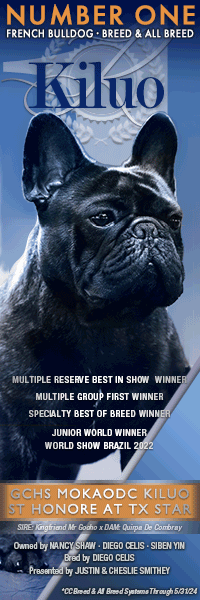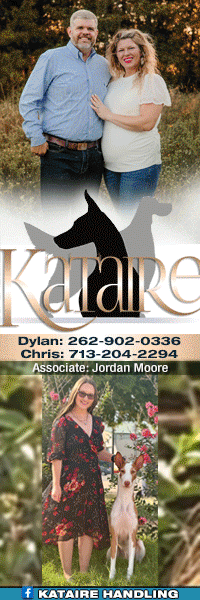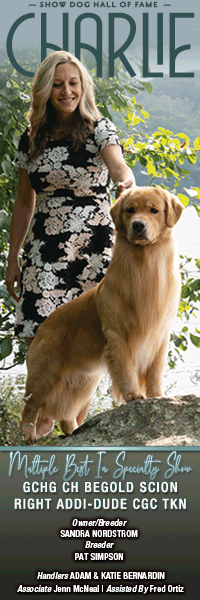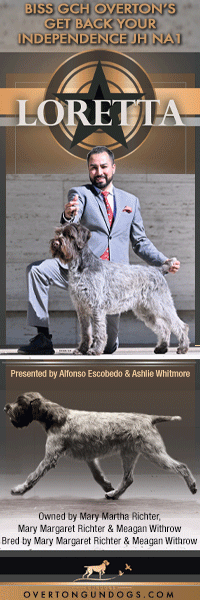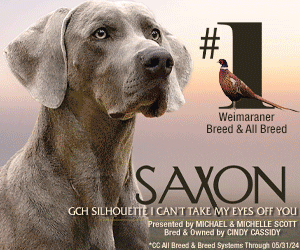Dog Statues
Click here to read the complete article
They are frozen in time and sometimes deceptively real. Perpetuated in stone or bronze, looking over water, streets, parks or squares, they can be found all over the world.
by Ria Hörter
Franklin Delano Roosevelt Memorial
sculpture by Neil Estern
Memorial
The Franklin Delano Roosevelt Memorial in Washington, D.C. – one of Washington’s top attractions – is dedicated to the memory of the 32nd President of the United States (1933-45) for leading the U.S. through the Great Depression and World War II. The monument is located in West Potomac Park between the Tidal Basin and the Potomac River. The impressive park-like memorial, which is spread over 7.5 acres, was dedicated on May 2, 1997 by President Bill Clinton.
It comprises four open-air “rooms” with waterfalls symbolizing peace. The four rooms represent Roosevelt’s four terms as President. In one room, Roosevelt depicted in a loose-fitting cloak that obscures the chair, with his hands folded; it is reminiscent of the photo taken at the Yalta Conference in 1945. Anybody who was old enough to witness the end of the Second World War is familiar with the photo that shows Roosevelt dressed in a cloak and seated between Winston Churchill and Joseph Stalin.
For dog fanciers, this room is the most interesting because Roosevelt is accompanied by Fala, his Scottish Terrier. Another statue, placed near the memorial entrance in 2001, shows the President seated in a wheelchair, with Fala beside him.
Christmas Gift
Fala was born on April 7, 1940, and was an early Christmas gift to Roosevelt from Mrs. Augustus G. Kellogg of Westport, Connecticut, through Roosevelt’s sixth cousin, Margaret “Daisy” Suckley (1891-1991). Daisy raised Scottish Terriers and became a close friend and confidante of the President, as well as an archivist for the Franklin D. Roosevelt Presi-dential Library and Museum. During World War II, Daisy often stayed for long visits at the White House. Numerous newspapers have speculated about their relationship, but there is no evidence that Roosevelt and Daisy had an affair.
As did many of Roosevelt’s friends and relations, Daisy believed that a puppy would give her cousin happiness and some relaxation. That’s exactly what happened; the President and the Scottish Terrier were inseparable, and Fala became part of the President’s image.
Beloved Pet
Fala’s original name was Big Boy, but Roosevelt soon renamed him Murray the Outlaw of Falahill, after John Murray of Falahill, a famous 16th-century Scottish ancestor of Roosevelt’s. Before Fala moved into the White House on November 10, 1940, Daisy taught him obedience and many tricks. He could sit up, roll over, smile, and jump on command.
Being the President’s beloved pet, Fala accompanied Roosevelt to important events; he traveled on Sacred Cow, the President’s airplane; the Ferdinand Magellan, the custom-made train car; and to Hyde Park in Roosevelt’s private car.
Each day a bone was included for Fala on the President’s breakfast tray. Unfortunately, the dog also visited the kitchen where he received too much food, and his digestive system suffered. According to fdrlibrary.marist.edu, “Fala got a full dinner every night. Throughout the day, Fala would beg for food from the White House staff. He was so cute that the staff could not resist feeding him and he became sick. The President then directed the staff not to feed him extra food. At night, he slept in a special chair at the foot of the President’s bed.”
Thousands of letters for Fala were delivered to the White House, and a secretary had to be appointed just to handle his fan mail. First Lady Eleanor Roosevelt considered Fala “a spoiled little creature” and it is said that now and then Roosevelt and his wife argued about him.
In the Public Eye
Probably no dog has been seen in more newsreels over the last century than Fala. On April 10, 1943, MGM got permission to make a short comedy about Fala’s life in the White House. Fala The President’s Dog was directed by Gunther von Fritsch. The movie is still shown at the Roosevelt Museum. It was so popular that MGM released a second documentary in 1946, Fala at Hyde Park.
Two books were published about Fala: The True Story of Fala (1942), a children’s book by Margaret “Daisy” Suckley, and F.D.R. My Boss (1949) by Grace T. Tully and William O. Douglas. Both titles are available from abebooks.com and amazon.com.
The Fala Speech
“This spoiled little creature” became a political subject in 1944, when the President and Fala visited one of the Aleutian Islands and a rumor was spread that Fala was accidentally left behind on one of the islands. During the 1944 presidential campaign, the Republicans accused Roosevelt of spending millions of taxpayer dollars to get Fala back. It was said that the Navy had to send a torpedo boat to retrieve the dog.
In one of his speeches, Roosevelt stated: “These Republican leaders have not been content with attacks on me, or my wife, or on my sons. No, not content with that, they now include my little dog, Fala. Well, of course, I don’t resent attacks, and my family doesn’t resent attacks, but Fala does resent them.”
The half-hour speech to the Teamsters Union was broadcast on all U.S. radio networks. It became known as “the Fala speech” and many jokes were made about the incident.
Second World War
Before America entered the Second World War, Fala became president of Barkers for Britain, a nationwide effort by American dog fanciers to support non-military aid to the British people. Membership in Barkers for Britain helped Bundles for Britain, an organi-zation that collected donations of cash and clothing, etc., for the British people. Every dog lover who paid 50¢ or $1 to Barkers for Britain received a tag with “Fala Helped Bundles for Britain” on one side, and the flags of the United States and Great Britain on the other. Fala himself got tag No. 1, and as national president of Barkers for Britain, he was often asked to sign membership certificates with his paw print. Between April and October 1941, almost 30,000 tags were issued, to be attached with pride to a dog’s collar.
During the Battle of the Bulge – a major German offensive campaign launched through the densely forested Ardennes region between December 16, 1944, and January 25, 1945 – American soldiers would ask one another the name of the President’s dog, expecting the answer “Fala,” as an extra safeguard against German soldiers trying to infiltrate American ranks.
The President did not see the end of World War II; Roosevelt died on April 12, 1945. Daisy Suckley was one of the four women with Roo-sevelt at the Little White House in Warm Springs, Georgia, when he died within hours of suffering a cerebral hemor-rhage. She was on the train that bore Roosevelt’s body to Washington, and attended the funeral. Then she returned to her work at the Franklin Delano Roosevelt Library and Museum until 1963.
Fala also attended the funeral but couldn’t comprehend the loss of his master. In her newspaper column My Day, Eleanor Roosevelt wrote: “It was Fala, my husband’s little dog, who never really readjusted. Once, in 1945, when General Eisenhower came to lay a wreath on Franklin’s grave, the gates of the regular driveway were opened and his automobile approached the house accompanied by the wailing of the sirens of a police escort. When Fala heard the sirens, his legs straightened out, his ears pricked up and I knew that he expected to see his master coming down the drive as he had come so many times. Later, when we were living in the cottage, Fala always lay near the dining-room door where he could watch both entrances just as he did when his master was there. Franklin would often decide suddenly to go somewhere and Fala had to watch both entrances in order to be ready to spring up and join the party on short notice. Fala accepted me after my husband’s death, but I was just someone to put up with until the master should return.”
Puerto Rico
In her book On My Own, Eleanor Roosevelt wrote that although Fala accepted her as his new boss, he always waited for Roosevelt to come home. When he was getting older, Fala was joined by his grandson, Tamas McFala. Eleanor and the two dogs spent happy days at Vall-Kill cot-tage in Hyde Park, N.Y.
On April 5, 1952, Fala pas-sed away at almost 12 years of age. He was buried next to the sun dial in the Rose Garden of Springwood, Hyde Park, near the graves of Franklin and Eleanor. A simple white stone inscribed with “FALA 1940-1952” keeps the memory alive.
In Old San Juan, Puerto Rico, another statue of Fala and President Roosevelt has been placed at the Paseo de los Presidentes. Nine U.S. Presidents who visited Puerto Rico have been commemorated with bronze statues, from Theodore Roosevelt in 1906 to Barack Obama in 2011. Franklin D. Roosevelt, who visited the country in 1934, is depicted in his wheelchair. The life-sized statue was unveiled in April 2008, by Bill Clinton. On the left hand of the president is a bronze statue of Fala. He was not just a dog – he was a notable personality.
Scottish Terriers in the U.S.
The Scottish Terrier is one of five terrier breeds that originated in Scotland, the others being the Skye, Cairn, Dandie Dinmont and West Highland White.
The breed was introduced to North America in the 1880s, but it was not until the years between World Wars I and II that the Scottie became a popular companion dog.
The American Kennel Club credits John Naylor of Mount Forest (near Chicago), Illinois, with introducing the Scottish Terrier to the States, with a dog and a bitch, Tam Glen and Bonnie Bell, both imports he was showing in 1883. Naylor also imported Prince Charlie, a Canadian-bred dog whelped in London, Ontario, in April 1881, and a bitch, Queen Lilly. Both were registered with the National American Kennel Club in 1883 (vol. 2, Nos. 3310 and 3311), to become the first and second Scotties registered with the AKC. As well, Naylor registered the first American-bred Scottie, Dake (vol. 3, No. 3688), whelped in Indiana in September 1884.
By the 1930s, Scottish Terriers were the third most popular breed in the United States.
The Scottish Terrier Club of America (STCA) was organized in 1900; today there are 20 regional clubs all over the United States. According to the club’s website at stca.biz, “In 1895, before the formation of the Scottish Terrier Club of America, there had been an organization known as the American Scottish Terrier Club composed of four or five gentlemen who had attempted to foster the breed but after several years they abandoned the idea, at least so far as a specialty club was concerned, for the American Scottish Terrier Club ceased to exist. However, its treasurer, Mr. James I. Little of Boston, Massachussetts became active in the new Club.”
The “Scotch Terrier” was recognized by the AKC in 1885. The American breed standard was developed in 1925 by the STCA in accordance with AKC guidelines; the current version was approved on October 12, 1993.
Westminster
Eight Scottish Terriers have won Westminster Best in Show: Ch. Tickle Em Jock (1911), Ch. Shieling’s Signature (1945), Ch. Walsing Winning Trick of Edgerstoune (1950), Ch. Carmichael’s Fanfare (1965), Ch. Bardene Bingo (1967), Ch. Braeburn’s Close Encounter (1985), Ch. Gaelforce Post Script (1995), and Ch. Roundtown Mercedes of Maryscot (2010).
FDR was not the only U.S. President who favored Scotties. George W. Bush owned two black Scottish Terriers named Barney and Miss Beazley, and Dwight D. Eisenhower had Telek and Caacie.
The Sculptor
The Franklin Delano Roosevelt Memorial was designed by landscape architect Lawrence Halprin. The statues of Franklin, Eleanor and Fala were sculpted by Neil Estern of Brooklyn Heights, N.Y. The first commissioned monument of this award-winning sculptor, who served two terms as president of the National Society of Sculptors, was the JFK memorial unveiled in 1965 at Grand Army Plaza in Manhattan.
Short URL: http://caninechronicle.com/?p=86150
Comments are closed


